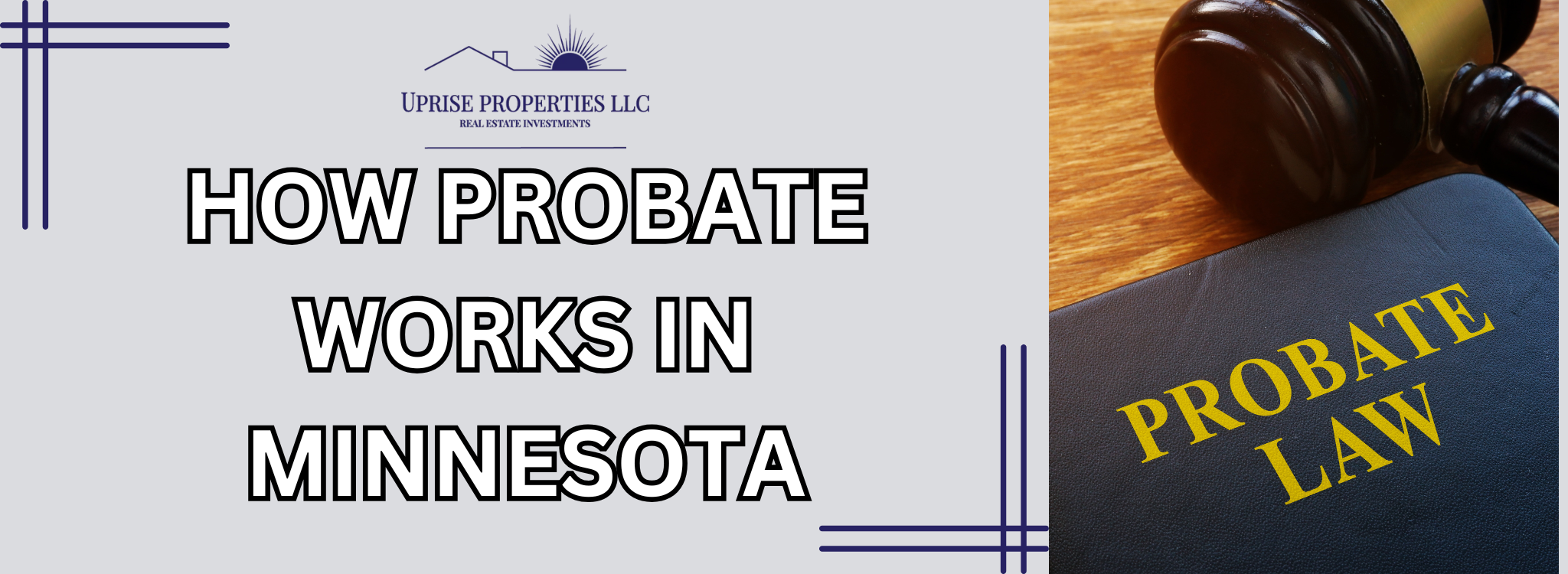
Understanding Probate in Minnesota: A Comprehensive Guide
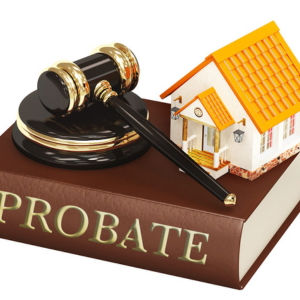
What is Probate, and Why is it Necessary?
Probate is a legal process that begins after someone dies. If no will exists, the deceased person’s estate should be divided per their will or state law. In Minnesota, probate involves the court reviewing the validity of the will, assigning an executor or administrator, and settling debts prior to asset distribution.
Reasons for probate in Minnesota include:
- Validation of the Will: The court confirms that the will is valid.
- Appointment of Executor/Administrator: A person is named to manage the estate either as an executor named in the will or as an administrator appointed by the court.
- Settlement of Debts: All debts and taxes the estate owes are cleared during probate to ensure that creditors are paid before assets are distributed.
What Happens to Assets After Someone Dies in Minnesota?
After a person dies in Minnesota, their assets are distributed in steps before reaching heirs or beneficiaries. The probate court oversees this transfer.
- Identification of Assets: The executor compiles a list of all assets, including property, personal items, bank accounts, and investments.
- Debt Notification and Settlement: Probate is communicated to heirs and interested parties. The estate’s debts must be paid before assets are passed to beneficiaries.
- Distribution to Heirs: The remaining assets are distributed according to the will once debts and taxes are paid. If there is no will, Minnesota’s intestacy laws govern the inheritance.
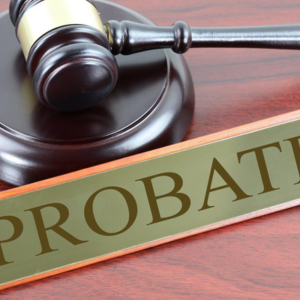
Types of Assets Included in a Minnesota Probate Estate
Not all assets are probated in Minnesota. The probate estate generally consists of assets held solely in the deceased’s name, with no beneficiaries. These assets typically include:
- Real Estate: Property owned solely by the deceased.
- Personal Property: Items such as jewelry, furniture, and art.
- Bank Accounts: Accounts with no joint ownership or pay-on-death designation.
- Stocks and Bonds: Investments not in a brokerage account with a transfer-on-death designation.
- Insurance: Policies where the estate is the named beneficiary.
- Vehicles: Cars and other vehicles registered only in the deceased’s name.
Knowing which assets are part of the probate estate allows you to determine what requires court supervision and can pass directly to heirs.
For more information on how Minnesota probate laws may affect your estate, consult a legal expert. Uprise Properties LLC can help you connect with experienced estate planning and probate attorneys.
Key Players in the Minnesota Probate Process
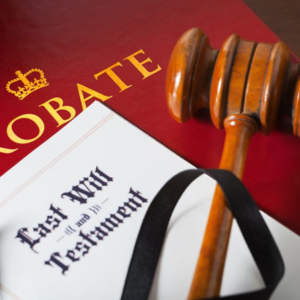
The Role of the Executor or Administrator
The executor or administrator plays a vital role in Minnesota probate proceedings. Their primary responsibility is administering the deceased’s estate following probate court guidelines. Their responsibilities include:
- Acting with care for the estate
- Collecting and listing all estate assets.
- Paying any debts and taxes that the estate owes
- Distributing the remaining assets to the appropriate beneficiaries
The executor or administrator must follow legal guidelines, maintain transparency, and act in the estate’s and its beneficiaries’ best interests.
Responsibilities of Beneficiaries
Regarding inheritance and estate distribution, beneficiaries have particular rights and obligations during the probate process. Their main chore is:
- Understanding Rights: Beneficiaries have the right to be informed of the development of the estate and asset distribution.
- Communication: They should keep open lines of contact with the executor to get updates on the probate process.
- Claims and Heirs: Beneficiaries could have to answer any claims against the estate to guarantee that their interests are sufficiently represented.
Beneficiaries help distribute the estate smoothly.
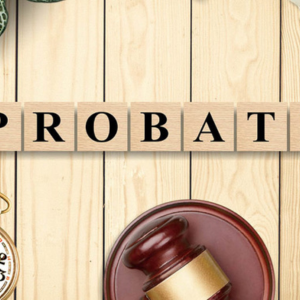
Rights and Roles of Creditors
During the probate process, creditors have distinct rights to recover debts the estate owes. Their participation includes:
- Notification: Executors must notify creditors of the decedent’s death so that they can submit claims for settlement.
- Claims and Debts: Creditors must formally present their claims to the probate court for validation and possible repayment from the estate’s assets.
- Legal Rights: Creditors are entitled to fair treatment under the law, which ensures due process in debt settlement per probate court rules.
Creditor claims must be managed and organized if the estate is to be settled and all financial obligations are met.
Navigating the Minnesota Probate Process: A Step-by-Step Guide
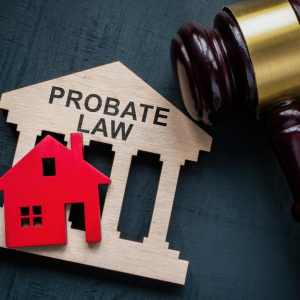
Initiating Probate Proceedings: Required Documents and Filing
Starting probate proceedings in Minnesota requires gathering and filing the necessary documents correctly. The executor or administrator must petition the probate court in the appropriate county. This petition is a formal request to open the probate case, and it must include key documents such as the original will (if available) and a list of heirs. Other legal forms must be completed under court rules.
- Petition: A petition requests the court to begin probate proceedings.
- Will: The will is the original document expressing the deceased’s wishes for their estate.
- Heirs: Heirs are individuals who have the right to inherit under a valid will or state law in the absence of one.
Meeting deadlines is crucial; missing one can cause legal issues. It’s wise to consult an attorney to ensure compliance with all required procedures.
The Probate Court Process: From Petition to Distribution
Once the probate court accepts the petition, assets will be distributed according to Minnesota estate law. A judge reviews the petition and sets up a hearing to validate the will and appoint the executor. The executor oversees the estate’s administration, which includes asset compilation and valuation.
Key Steps in the Probate Court Process:
- Hearing: The judge reviews the petition and confirms the executor.
- Asset Identification: Collecting and appraising the deceased’s assets.
- Settlement of Debts: Paying off any debts or liabilities.
- Distribution: Allocating remaining assets to beneficiaries per the will or legal order.
Throughout this process, it’s vital to follow estate law closely. Executors should stay informed about estate requirements, like filing taxes and fulfilling other obligations, to ensure the smooth distribution of the estate’s assets.
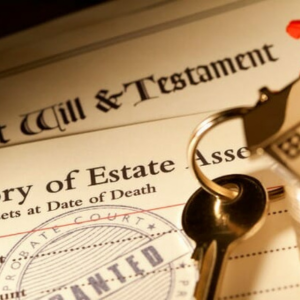
Fees and Costs Associated with Probate in Minnesota
Understanding the fees and costs involved in probate in Minnesota is key for managing the estate. Estate settlement can incur several expenses:
- Court Fees: Payments are required for filing and processing probate documents.
- Attorney Fees: Hiring an attorney for legal help, with fees based on how complex the case is.
- Executor Compensation: Executors typically receive compensation that must follow statutory guidelines.
Other costs might include appraisal fees and administrative expenses. Careful financial management during the probate process ensures all costs are paid per Minnesota law.
For further guidance or legal support, consider contacting Uprise Properties LLC for assistance through the probate process.
Common Challenges and Potential Complications in Minnesota Probate

Resolving Disputes Among Family Members
Estate law’s handling of family member conflicts can be challenging and emotionally taxing. Family members should have a strategy in place to help them settle differences in the distribution of an estate. While some conflicts might result in court, mediation and negotiation help prevent protracted legal battles. These strategies seek to raise understanding and communication quality. Expert legal advice can help families negotiate this process so everyone is heard and a just outcome is obtained.
Dealing with Contested Wills or Missing Heirs
A contested will will present considerable challenges during the probate process. Disputes can emerge from allegations of fraud, undue influence, or insufficient capacity, resulting in litigation within the probate court. Investigations to collect evidence and testimonies may be necessary. The absence of heirs introduces additional complexities, which may result in delays as attempts are made to find them. Expert legal counsel is essential for navigating the probate process effectively and ensuring progress without unnecessary delays.
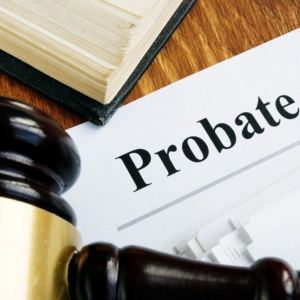
Addressing Tax Implications and Debt Settlement
In Minnesota, probate is like walking a tightrope. One mistake with taxes or debts could land you in trouble. Estates often struggle with the Minnesota Department of Revenue taxes. Thoughtful tax planning is necessary to manage these duties and avoid estate financial issues. Debts must be paid to ensure a smooth estate division. Managing your finances and talking to tax wizards is essential to comply with state laws and protect your estate. Skip the complexities of estate administration Uprise Properties LLC buys houses directly for cash, providing a fast and hassle-free solution. Contact us today for expert guidance and a fair offer!
Contact us for more information on managing these probate complexities.
Avoiding Probate and Estate Planning in Minnesota

Estate Planning Tools to Minimize or Avoid Probate
Estate planning in Minnesota can help you reduce or avoid the probate process. For example, trusts can make transferring assets to your heirs easier. Trusts allow you to manage and distribute property without going through the lengthy probate court process, giving you greater control over how assets are distributed. Having a well-defined will and naming beneficiaries can help reduce legal complexities.
Properly structuring property ownership can protect your heirs’ interests while lowering estate taxes. Advice from legal services or an attorney can help you choose the best planning tools for your needs. Working with experts ensures that your estate plan is comprehensive and practical.
The Benefits and Drawbacks of Probate Avoidance
Avoiding probate has several advantages, including less time in court and fewer expenses. Families can keep their affairs private by avoiding probate since the public records of this process are available. Avoiding probate also enables faster asset distribution, helping heirs to get their inheritance sooner.
There are also disadvantages, though. Establishing trusts and other planning instruments could involve legal fees and an initial outlay. Choosing strategies incorrectly might result in inadequate asset transfer. Knowing these drawbacks will enable one to make wise decisions about estate planning.
Legal and real estate experts can provide insightful analysis of how to balance these advantages and disadvantages so that your estate is handled as you want it.
FAQs:
How Does Probate Differ in Minneapolis and Saint Paul, Minnesota?
Probate in both cities follows Minnesota state laws, but local court procedures differ. Hennepin County (Minneapolis) and Ramsey County (Saint Paul) have unique court systems for probate handling. Knowing the local rules for filing petitions and estate management is crucial.
What Are the Key Steps Involved in the Minnesota Probate Process?
The process involves filing a petition with the court, notifying heirs and creditors, inventorying assets, settling debts, and distributing assets to beneficiaries. Executors must follow Minnesota estate law throughout.
How Can I Navigate Minnesota Estate Planning and Probate Efficiently?
Understanding state estate laws, setting up wills and trusts, and knowing inheritance processes are essential. Consulting an experienced attorney can aid in managing estates and complex probate matters.
What Role Does an Executor Play in Minnesota Probate Proceedings?
An executor handles the decedent’s estate per the will and Minnesota probate guidelines. Duties include managing assets, paying debts, filing tax returns, and ensuring beneficiaries receive their inheritance. Executors must act in the estate’s best interest and meet legal obligations.
How Does Minnesota Handle Estates Without a Will (Intestate)?
Without a will, Minnesota’s intestacy laws determine asset distribution, usually to the closest relatives like spouses or children. An administrator is appointed to manage the estate according to legal protocols.
What Options Exist to Avoid Probate in Minnesota?
Options include setting up living trusts, holding assets jointly with survivorship rights, and designating account beneficiaries. These methods transfer assets directly to heirs, bypassing probate.
How Are Inheritance and Estate Taxes Managed in Minnesota?
Minnesota doesn’t have an inheritance tax, but it imposes an estate tax if the estate exceeds the exemption threshold. Executors must file tax forms with the Minnesota Department of Revenue and comply with tax requirements.
Can Minors Inherit From an Estate in Minnesota?
Yes, minors can inherit, but they can’t receive the inheritance directly until adulthood. A guardian or conservator manages the minor’s inheritance until they reach legal age, ensuring proper asset management and protection.
Key Insights
- Understanding how probate works in Minnesota is crucial for managing an estate and addressing key parts of estate planning and settlement.
- Executors should know the Minnesota estate process, which involves specific legal actions unique to the state.
- Being familiar with Minnesota inheritance laws is vital for ensuring smooth asset transfers to heirs.
- Navigating probate proceedings in Minneapolis and Saint Paul requires attention to local rules.
- The role of Minnesota executors in probate includes understanding their legal duties and responsibilities.
- Knowing that Minnesota will process relevant probate guidelines ensures compliance with state regulations.
- Probate matters in Minnesota often involve complex situations that may require legal advice.
- Effective estate management during probate involves clear communication and following judicial guidelines.
- Executors need to be aware of the tax implications and reporting rules from the Minnesota Department of Revenue.
- Legal professionals, such as attorneys, can guide conservatorship and guardianship issues.
- Executors must carefully handle various probate documents, like petitions and codicils.
- Familiarity with Minnesota’s legal resources helps executors manage probate more effectively.
- In complex estates, understanding joint tenancy and tenancy-in-common can affect asset distribution.
- Executors should be ready for potential probate disputes, ensuring fair resolutions.
- The probate process often includes a detailed inventory and appraisal of assets, requiring expert valuation.
- Executors should develop estate planning strategies to optimize financial results and lower costs.
- Knowing Minnesota courts and legal procedures aids in efficient and transparent probate processes and helps if you need to sell a house in foreclosure, ensuring you follow the correct legal steps and timelines.
- Contact us for expert help in navigating the probate landscape and securing your estate planning needs.
This information applies to Minnesota and its cities, including Minneapolis, Minnetonka, Plymouth, St Paul, and more. For more details, please call us at (612) 842-0433 or visit our website at Uprise Properties LLC.


